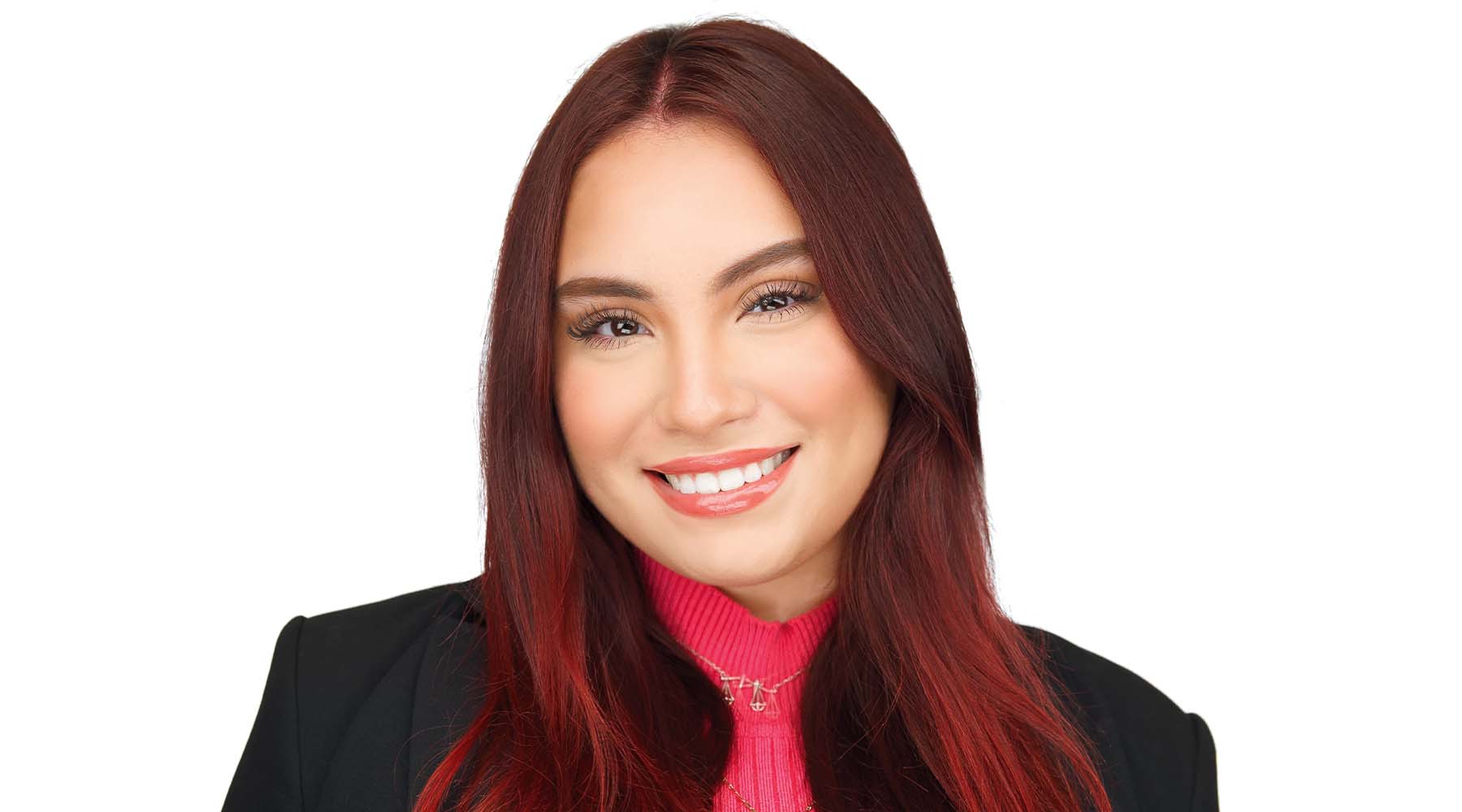STUDENT PROFILE Charlene Echeverria Burciaga
Family first
Charlene Echeverria Burciaga prepares for a community-minded career
Charlene Echeverria Burciaga was 9 years old the first time she saw her father cry. The family was in danger of losing their house, and her dad had hired an attorney to help prevent that from happening. Instead, the attorney took a fee much larger than the family could afford, and they lost the house anyway. She’ll never know exactly what happened, she says, but she’ll also never forget her father’s devastation.
“He felt cheated. He said to me, ‘If you ever become a lawyer, be an honest one.’”
Becoming a lawyer seemed like a logical path for the young Echeverria Burciaga. For years, she’d been acting as a translator, navigator, and advocate for her family in small and large matters. Her immigrant parents and grandparents never had the opportunity to finish high school.
From age 16, Echeverria Burciaga also helped to financially support her family by working as much as possible. It wasn’t until her junior year in college that she could afford to take a break from working and focus on school.
“Then I had time to build bridges with faculty,” she recalls. “They told me about law school. My family didn’t know there was anything past college—that you needed another degree to become a lawyer.”
Choosing “a school that wanted me”
With professors’ encouragement, Echeverria Burciaga investigated several Chicago law schools.
“I wanted to go to a school that wanted me—that would have resources for me, have professors who understood me, have people who cared about my community,” she says.
While visiting Loyola, Echeverria Burciaga met Giselle Santibanez-Bania, assistant dean for student services, and Maya Crim, assistant dean for JD admission and scholarships.
“I remember thinking, ‘Here is a Latina woman. Here is a Black woman. They’re in positions of power, and they’re making a place for people like us,’” she says.
Echeverria Burciaga joined Loyola’s Health Justice Project last summer. She applied when she learned that the medical-legal partnership is with Erie Family Health Centers, a prominent healthcare practice for her family and neighbors.
“Everybody I knew went there, so working in the Health Justice Project meant I was directly helping my community,” she says, “My clients felt like my aunts and uncles and grandparents. I did immigration cases, asylum cases, Medicare cases, guardianship cases—and it was so fulfilling to be able to literally speak my clients’ language and truly help them.”
“Loyola carves out space for students of color, low-income students, first-generation students.”
Helping the next first generation
Echeverria Burciaga is co-president of the law school’s First Generation Law Students organization. She helps ensure that first-generation students can find each other, learn from each other, and share their struggles, resources, and advice with each other.
“We even host events for accepted [first-generation] students so they know there’s a path for them here,” says Echeverria Burciaga.
As for what she’ll do after law school, she wants to continue serving her community in some way, possibly in litigation, but “I’m still learning so much,” she says. “Anything’s possible.” –Liz Miller (May 2022)



